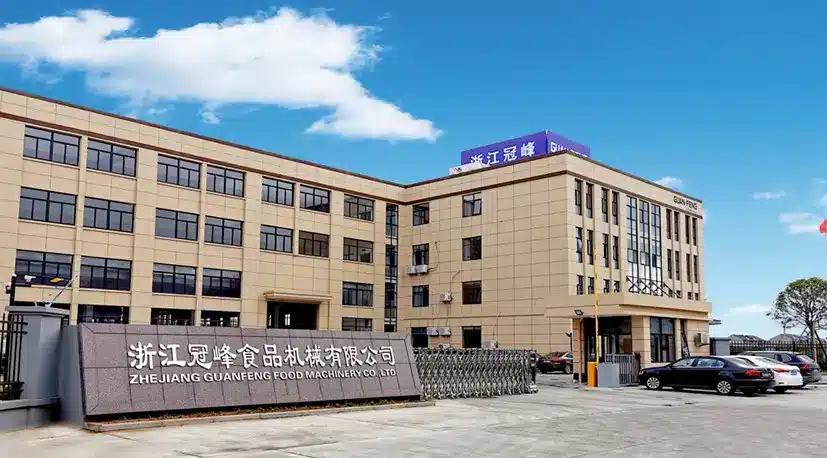BLOG
Focus on hot topics, real-time dynamics
Innovative Uses of Vegetable Lyophilizers in Pharmaceutical Research: Transforming Drug Development
Innovative Uses of Vegetable Lyophilizers in Pharmaceutical Research
Table of Contents
- 1. Introduction
- 2. What is Lyophilization?
- 3. Importance of Lyophilization in Pharmaceuticals
- 4. Understanding Vegetable Lyophilizers
- 5. Benefits of Vegetable Lyophilizers in Research
- 6. Applications in Drug Development
- 7. Case Studies: Successful Implementations
- 8. Future Trends in Lyophilization
- 9. Conclusion
- 10. Frequently Asked Questions
1. Introduction
The pharmaceutical industry is undergoing a significant transformation as researchers seek innovative methods to enhance drug formulation and stability. One critical technology that has emerged as a game-changer in this field is the use of **vegetable lyophilizers**. By leveraging the principles of freeze-drying, these systems offer unique advantages that can improve the quality and effectiveness of pharmaceutical products. This article delves into the innovative uses of vegetable lyophilizers in pharmaceutical research, highlighting their benefits, applications, and future potential.
2. What is Lyophilization?
Lyophilization, commonly known as freeze-drying, is a dehydration process that removes moisture from materials without damaging their structure. This technique involves freezing the material and then reducing the surrounding pressure to allow the frozen water to sublimate directly from solid to vapor. The result is a dry, stable product that retains its original characteristics, making it particularly valuable for pharmaceuticals.
3. Importance of Lyophilization in Pharmaceuticals
The importance of lyophilization in pharmaceuticals cannot be overstated. This process enhances the shelf life of drugs, preserves the integrity of sensitive compounds, and facilitates easier transport and storage. By removing moisture, lyophilization minimizes the risk of microbial growth and chemical degradation, ensuring that drugs remain effective until they are ready to be used.
4. Understanding Vegetable Lyophilizers
Vegetable lyophilizers are specialized freeze-drying systems designed to optimize the lyophilization process for vegetable-based materials. These advanced systems offer enhanced control over temperature, pressure, and drying duration, resulting in superior end products. The integration of vegetable lyophilizers in pharmaceutical research allows for the extraction of active ingredients from plant sources, which can be crucial for developing new therapies.
5. Benefits of Vegetable Lyophilizers in Research
The use of vegetable lyophilizers in pharmaceutical research brings numerous benefits:
5.1 Enhanced Stability
By effectively removing moisture, vegetable lyophilizers enhance the stability of pharmaceuticals, ensuring that active ingredients retain their potency over time.
5.2 Preservation of Bioactivity
The freeze-drying process used in vegetable lyophilizers preserves the bioactivity of plant extracts, which is essential for the efficacy of herbal medications and nutraceuticals.
5.3 Tailored Formulations
Researchers can create customized formulations that cater to specific drug delivery methods, allowing for innovative therapeutic approaches.
5.4 Cost-Effectiveness
The efficient operation of vegetable lyophilizers can lead to reduced production costs, making the development of pharmaceutical products more economically viable.
6. Applications in Drug Development
The applications of vegetable lyophilizers in drug development are vast and varied. Here are some notable examples:
6.1 Development of Herbal Medicines
Vegetable lyophilizers are particularly useful in the extraction and stabilization of bioactive compounds from herbs. This process ensures that potent medicinal properties are retained, facilitating the development of high-quality herbal medicines.
6.2 Formulation of Vaccines
Lyophilization plays a critical role in vaccine formulation by stabilizing active ingredients and extending shelf life. Vegetable lyophilizers can be used to develop plant-based vaccines, which may offer a more sustainable and cost-effective alternative to traditional methods.
6.3 Production of Nutraceuticals
The growing interest in nutritional supplements has led to the increased use of vegetable lyophilizers to produce stable, bioavailable nutraceuticals. These products benefit from enhanced flavor, potency, and shelf life.
6.4 Targeted Drug Delivery Systems
Lyophilized formulations allow for the development of targeted drug delivery systems, where active compounds are precisely released in specific areas of the body, improving therapeutic outcomes.
7. Case Studies: Successful Implementations
Examining real-world applications of vegetable lyophilizers can provide valuable insights.
7.1 Case Study 1: Herbal Extracts for Chronic Diseases
In a recent study, researchers utilized vegetable lyophilizers to produce stable extracts from various herbs known for their anti-inflammatory properties. The resulting formulations showed promise in managing chronic diseases, paving the way for new treatment options.
7.2 Case Study 2: Plant-Based Vaccines
Another significant implementation involved the use of vegetable lyophilizers to stabilize antigens derived from plants for vaccine development. This innovative approach not only simplified the production process but also demonstrated efficacy in preclinical trials.
8. Future Trends in Lyophilization
As technology continues to advance, several trends are emerging in the field of lyophilization:
8.1 Integration of Automation and AI
The future of vegetable lyophilizers lies in integrating automation and artificial intelligence to optimize the freeze-drying process. This can lead to greater consistency, efficiency, and quality control in pharmaceutical production.
8.2 Sustainable Practices
With growing environmental concerns, there is an increasing focus on sustainable practices in drug development. Vegetable lyophilizers can play a key role in this by enabling the use of renewable plant sources and reducing waste.
8.3 Personalized Medicine
The ongoing shift towards personalized medicine may create demand for tailored drug formulations. Vegetable lyophilizers will be critical in developing customized therapies that cater to individual patient needs.
9. Conclusion
The innovative uses of vegetable lyophilizers in pharmaceutical research represent a significant advancement in drug development. By enhancing stability, preserving bioactivity, and enabling customized formulations, these systems are poised to transform the industry. As researchers continue to explore the potential of vegetable lyophilizers, we anticipate groundbreaking developments that will improve therapeutic outcomes and patient care.
10. Frequently Asked Questions
FAQ 1: What are the key advantages of using vegetable lyophilizers over traditional lyophilizers?
Vegetable lyophilizers provide enhanced control over the freeze-drying process, leading to improved product quality, better preservation of bioactivity, and the ability to work with plant-based materials effectively.
FAQ 2: Are vegetable lyophilizers suitable for all types of pharmaceuticals?
While vegetable lyophilizers excel in processing plant-based materials, their suitability depends on the specific formulation requirements of the pharmaceutical product being developed.
FAQ 3: How do vegetable lyophilizers contribute to sustainable pharmaceutical practices?
By utilizing renewable plant sources and minimizing waste through efficient freeze-drying processes, vegetable lyophilizers support sustainable practices in pharmaceutical development.
FAQ 4: What role do vegetable lyophilizers play in vaccine development?
Vegetable lyophilizers stabilize active ingredients in vaccines, extending their shelf life and maintaining efficacy, thus enabling innovative plant-derived vaccine formulations.
FAQ 5: Can vegetable lyophilizers be used for nutraceutical production?
Yes, vegetable lyophilizers are ideal for producing stable, bioavailable nutraceuticals from plant sources, enhancing their flavor, potency, and shelf life.
Hot Tags:
PREVIOUS:
Contact Us
E-mail:
sales@syguanfeng.com
Tel:
+86 15088506234
Address:
South Industrial Park of Dongguan, Shangyu District, Shaoxing City,Zhejiang Province,China.
GUANFENG, your customization experts!
GUANFENG FOOD MACHINERY - leading supplier of integrated food processing solutions
Copyright© 2024 ZHEJIANG GUANFENG FOOD MACHINERY CO.,LTD.










